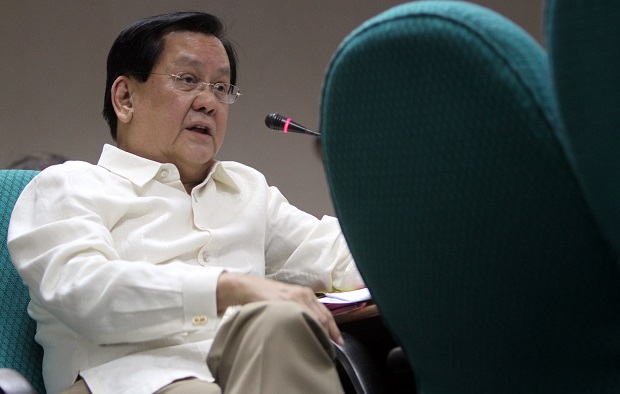The sale of electricity and other power generation and transmission-related transactions should be exempt from the 12-percent value-added tax (VAT) to ease the burden on Filipino consumers, according to Sen. Sergio Osmeña III.
“The VAT on electricity is another burden on the already over-taxed shoulders of our people, especially those whose incomes are barely enough to cover their basic needs. Thus, in light of the unabated price increases in fuel, food and other commodities, Congress is duty-bound to find ways to provide economic relief to the Filipino people,” Osmeña said .
Osmeña, who chairs the committee on energy, has filed a bill seeking to amend the National Internal Revenue Code by adding power-related transactions to those exempted from the VAT.
Under the bill, the exemption would apply to the sales of electricity by generation, transmission and distribution companies and electric cooperatives; services of franchise grantees and electric utilities; and the sale or importation of machines and equipment to be directly used by the buyer or importer in the generation, transmission and distribution of electricity.
In his explanatory note, Osmeña pointed out the Philippines had one of the highest electricity rates in Southeast Asia.
He noted that in February, the 5.24-centavo increase in generation charge per kilowatt hour plus the 12-percent VAT raised electricity rates by 52 centavos per kilowatt hour. Thus, a household consuming 200 kWh per month paid VAT amounting to P188.55.
He said the amount was substantial to the average working Filipino, since the price per kWh could range from P5.49 to P12.10.
But there are other factors adding to the Filipino consumer’s burden, according to the senator. He said the VAT was not only imposed on the generation of consumed power, but also in the transmission and system loss charges.
“Thus, when it comes to electricity cost, Filipinos suffer most than those in Southeast Asia,” he added.
He called on his colleagues to hasten approval of the measure.
As for concerns the VAT exemption on electricity would put a dent on government collections, Osmeña said the upside was that the spending power of Filipinos would be raised.
“With regard to the foregone revenue that may be suffered by the government, it can be offset by the increased purchasing power of all households and businesses. The resulting cheaper production costs will then parlay to a more robust and equitable economy for the country,” he said.
